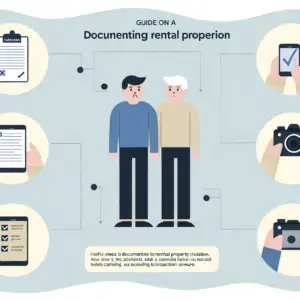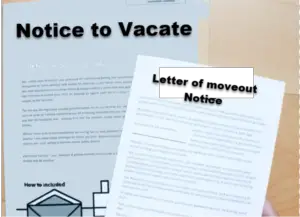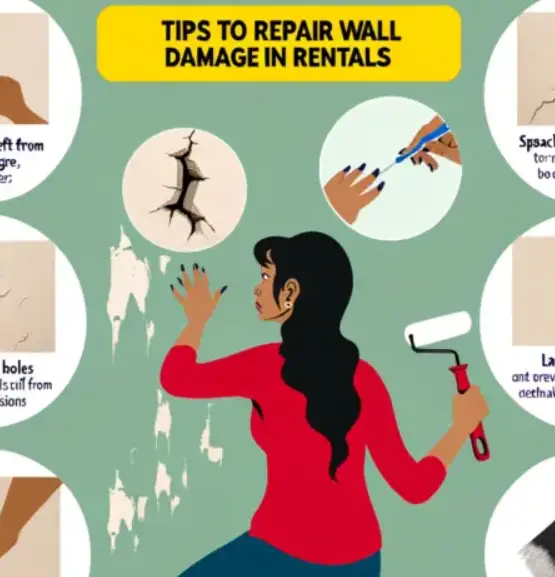Understanding Your Rights: Security Deposit Laws by State
Whether you’re a first-time renter or a seasoned tenant, understanding security deposit laws is crucial for protecting your financial interests. These laws vary significantly from state to state, creating a patchwork of regulations that can be confusing to navigate. This comprehensive guide breaks down security deposit laws across the United States, helping both tenants and landlords understand their rights and responsibilities.
What Is a Security Deposit?
A security deposit is a sum of money paid by a tenant to a landlord at the beginning of a lease. This deposit serves as financial protection for the landlord against potential damages to the property, unpaid rent, or other lease violations.
Landlords typically require security deposits for several reasons:
- To cover costs of repairing damage beyond normal wear and tear
- To compensate for unpaid rent if a tenant breaks the lease
- To cover cleaning costs if a tenant leaves the property in poor condition
- To offset unpaid utility bills or other charges
Most security deposits range from one to two months’ rent, though the exact amount depends on state laws, local rental market conditions, and the landlord’s policies. Some states specifically limit how much landlords can charge, while others leave it to the discretion of the property owner.
Key Security Deposit Laws and Regulations
While specific laws vary by state, several key aspects of security deposit regulations are common across jurisdictions:
Maximum Deposit Limits
Many states impose caps on how much landlords can charge for security deposits:
- Strict limits: States like California (two months’ rent for unfurnished units) and Massachusetts (one month’s rent) have clear statutory limits.
- No limits: States such as Texas and Georgia don’t impose maximum security deposit amounts at the state level.
Security Deposit Storage Requirements
Regulations often dictate how landlords must handle deposit funds:
- Separate accounts: Many states require landlords to hold security deposits in separate bank accounts, segregated from personal or business funds.
- Interest-bearing accounts: States like New York, New Jersey, and Connecticut require landlords to place deposits in interest-bearing accounts and pay tenants the accrued interest annually or at lease termination.
- Disclosure: Several states mandate that landlords disclose to tenants where their security deposit is being held.
Lawful Deductions
States typically allow landlords to make deductions from security deposits for:
- Damage beyond normal wear and tear
- Unpaid rent or utilities
- Cleaning costs to restore the unit to its move-in condition
- Costs to replace keys or other provided items
However, landlords generally cannot deduct for normal wear and tear, which includes the natural deterioration that occurs with normal living use over time.
Return Timelines
States set specific deadlines for landlords to return security deposits after tenant move-out:
- Short periods: Some states like Arizona require returns within 14 days.
- Longer periods: States like Alabama allow up to 60 days for landlords to return deposits.
- Itemized statements: Most states require landlords to provide an itemized list of any deductions made from the security deposit.
Security Deposit Laws by State
Security deposit laws vary significantly across the United States. Here’s an overview of how these laws differ by region:
Northeast Region
New York has enacted robust tenant protections. Landlords can charge no more than one month’s rent as a security deposit for most leases and must place deposits in interest-bearing accounts. Deposits must be returned within 14 days of lease termination.
Massachusetts limits security deposits to one month’s rent and requires landlords to provide a detailed statement of the apartment’s condition within 10 days of receiving the deposit. Deposits must be held in interest-bearing accounts, with interest paid to tenants annually.
West Coast
California has some of the most tenant-friendly laws. Security deposits are limited to two months’ rent for unfurnished units and three months’ rent for furnished units. Landlords must return deposits within 21 days of move-out, with detailed accounting of any deductions.
Washington doesn’t cap security deposit amounts but requires deposits to be placed in trust accounts with disclosure of the holding institution to tenants. Landlords must return deposits within 21 days of lease termination.
Midwest Region
Illinois doesn’t have statewide limits on security deposit amounts, but in Chicago, landlords must pay interest on deposits for residential buildings with 6+ units. Returns must be made within 30-45 days depending on whether there are deductions.
Ohio doesn’t cap security deposit amounts, but landlords must pay interest on deposits exceeding one month’s rent if the tenant stays for 6+ months. Deposits must be returned within 30 days of lease termination.
Southern States
Florida doesn’t limit security deposit amounts, but landlords must either hold deposits in a separate account (non-interest-bearing) or post a surety bond. They must return deposits within 15-60 days, depending on whether the tenant disputes deductions.
Texas is generally considered landlord-friendly, with no state limits on security deposit amounts and no requirement for deposits to be held in separate or interest-bearing accounts. Landlords must return deposits within 30 days of move-out.
For detailed information about your specific state, visit your state’s housing authority or consumer protection agency website.
Tenant Rights and Responsibilities
Understanding your rights as a tenant can help you protect your security deposit:
Key Tenant Rights
- Right to a move-in inspection: Many states give tenants the right to receive or participate in creating a move-in checklist documenting the unit’s condition.
- Right to a move-out inspection: In several states, tenants have the right to be present during the final inspection.
- Right to an itemized list of deductions: Most states require landlords to provide a detailed accounting of any deductions from the security deposit.
- Right to challenge deductions: Tenants can dispute deductions they believe are unfair or inaccurate.
Tenant Responsibilities
- Document the rental condition: Take photos and videos during move-in and move-out inspections.
- Report maintenance issues promptly: Notify your landlord of problems to avoid being charged for worsening conditions.
- Clean thoroughly before moving out: Leave the rental in the same condition as when you moved in, minus normal wear and tear.
- Return all keys and provided items: Ensure all property belonging to the landlord is accounted for when you leave.
Landlord Obligations and Best Practices
For landlords, understanding and following security deposit laws is crucial to avoid potential legal issues:
Legal Obligations
- Provide a written receipt: Many states require landlords to provide a receipt for the security deposit.
- Store deposits properly: Follow state laws regarding separate accounts and interest requirements.
- Conduct inspections fairly: Document the property condition at move-in and move-out.
- Return deposits on time: Adhere to state-mandated timelines for returning security deposits.
- Provide itemized deductions: Clearly explain any amounts withheld from the security deposit.
Best Practices
- Use a detailed lease agreement: Clearly outline all security deposit terms and conditions.
- Create comprehensive inspection checklists: Document property condition with photos and detailed notes.
- Maintain the property: Address maintenance issues promptly to prevent disputes.
- Communicate expectations: Provide move-out instructions, including cleaning requirements.
- Keep thorough records: Maintain documentation of all communications, inspections, and expenditures.
How to Dispute a Security Deposit Deduction
If you believe your landlord has unfairly withheld part or all of your security deposit, follow these steps:
1. Review Your Lease and State Laws
Before taking action, review your lease agreement and understand your state’s security deposit laws to confirm your landlord’s obligations.
2. Write a Formal Demand Letter
Send a written demand letter that includes:
- Your name, address, and move-out date
- The amount of security deposit paid
- A request for the return of your deposit or explanation of why deductions were improper
- Reference to relevant state laws
- A deadline for response (typically 7-14 days)
- Statement of intent to pursue legal action if the issue isn’t resolved
3. Consider Mediation
Many communities offer low-cost mediation services that can help resolve security deposit disputes without going to court.
4. File in Small Claims Court
If other methods fail, you can file a claim in small claims court. In many states, landlords who improperly withhold security deposits may be liable for damages beyond the deposit amount, sometimes two or three times the original deposit (treble damages).
Tips for Tenants to Protect Their Deposit
To maximize your chances of getting your full security deposit returned:
Before Moving In
- Document everything: Take dated photos and videos of every room, including any existing damage.
- Complete a detailed move-in checklist: Note all defects, even minor ones.
- Get confirmation: Have your landlord sign off on the checklist or acknowledge receipt.
During Your Tenancy
- Report maintenance issues promptly: Keep copies of all maintenance requests.
- Get written permission for modifications: Don’t make changes to the property without landlord approval.
- Conduct periodic self-inspections: Identify and address potential issues before they worsen.
Before Moving Out
- Review your lease: Understand specific move-out requirements.
- Clean thoroughly: Deep clean all areas, including appliances, bathrooms, and floors.
- Request a pre-move-out inspection: Ask your landlord to identify any issues you can fix before leaving.
- Document the condition: Take photos and videos showing the clean, damage-free state of the property.
- Provide forwarding address: Ensure your landlord knows where to send your deposit.
Changes and Updates in Security Deposit Laws
Security deposit laws continue to evolve as states respond to housing market changes and tenant advocacy:
Recent Changes
- Colorado recently amended its laws to limit security deposits to no more than two months’ rent and require returns within 60 days.
- California has strengthened tenant protections with stricter move-out inspection requirements and clearer definitions of normal wear and tear.
- New York’s Housing Stability and Tenant Protection Act of 2019 limited security deposits to one month’s rent and shortened the return period to 14 days.
Staying Informed
To keep up with changing security deposit laws:
- Follow your state’s housing authority or consumer protection agency
- Subscribe to tenant rights newsletters or legal updates
- Join tenant advocacy groups in your area
- Consult with a tenant rights attorney or legal aid organization for specific questions
Conclusion
Security deposit laws provide important protections for both tenants and landlords, creating a framework for fair practices in the rental market. Understanding these laws—particularly in your specific state—is essential for protecting your rights and financial interests.
For tenants, taking proactive steps like documenting property conditions, understanding lease terms, and knowing state-specific regulations can help ensure the return of your security deposit. For landlords, following proper procedures for handling deposits, conducting fair inspections, and providing timely returns can help avoid costly disputes and legal issues.
Before signing a lease or taking a security deposit, both parties should review their state’s specific laws and consider consulting with a housing attorney if questions arise. By understanding and following security deposit laws, tenants and landlords can establish clear expectations and reduce the potential for conflict when a lease ends.
Disclaimer: This article provides general information about security deposit laws and is not legal advice. Laws vary by state and may change over time. Consult with a qualified attorney for advice about your specific situation.
“`













